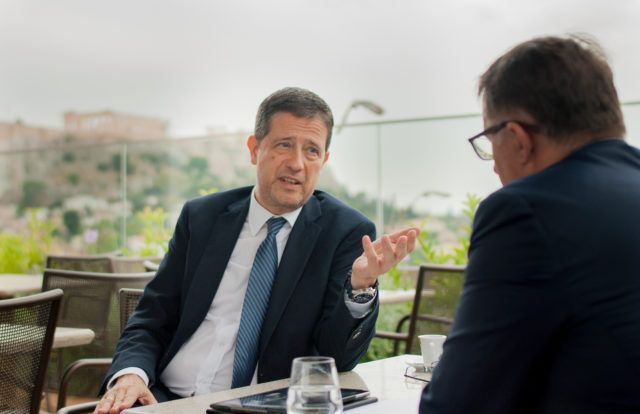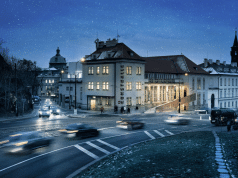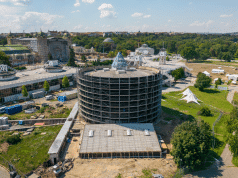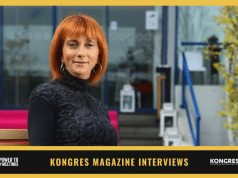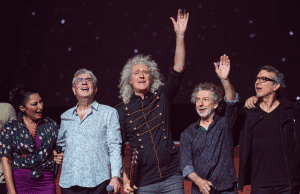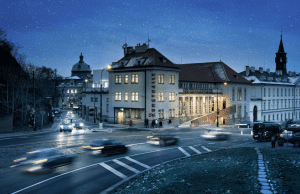ABOUT GEORGE
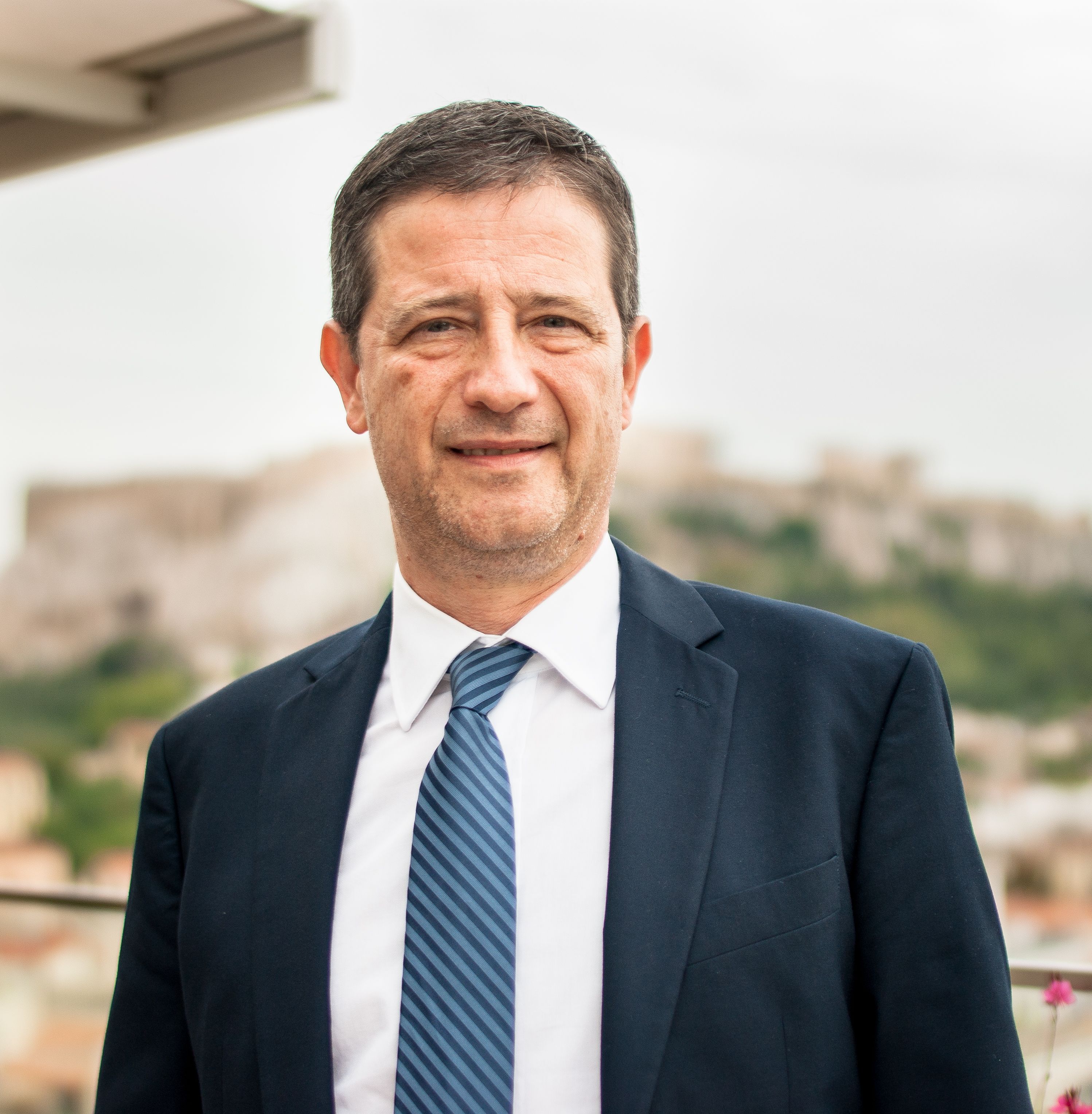
George Tziallas is the secretary general for tourism policy and development, Ministry of Economy, Development and Tourism in Greece. He is a civil engineer (University of Patras, Greece) with a Master’s Degree in urban and regional planning (M.Sc.) from the University of Tennessee at Knoxville, USA. He has twenty-five years of professional experience in management consulting, specializing in the fields of planning, local and regional development, tourism development and planning, as well as in the management, monitoring, and evaluation of EU programmes and projects of the CSFs and NSRF.
Q: How do you see Greek tourism developing in the future?
My prediction and vision regarding the Greek economic sector is very positive and encouraging. Tourism is a major contributor to our economy and it was probably the first economic sector that truly mattered, especially during the crisis. It showed resilience and helped the Greek economy during the deepest recession. It is definitely the most promising sector, where everyone wants to invest and get employed. We have been reaching a record number of arrivals in the last two years and we are hoping we will reach and exceed 30 million tourist arrivals in 2017. Last year the number of arrivals was 28 million and 26 million two years ago, which gives us proof that things are improving each year. We also have strategic plans in the ministry of tourism. We have a vision of Greece becoming one of the top 10 European destinations and we are almost there, but we need to start upgrading the quality of services on every level. It is also crucial to open new markets and it’s not a vision anymore, as we are doing it with great success. Even the employment is improving each year. To be exact, more than 120,000 new jobs were created in April and the majority of them in tourism.
Q: What are the challenges Greece is facing this year?
The main challenge is, as I said before, quality. This is something that all entrepreneurs in tourism understand and their willingness to upgrade their services and enterprises has shown itself already. In the last couple of years we have had many new applications of three star hotels wanting to become four star hotels, and four star hotels wanting to have that extra star.
Another challenge, which is a big strategic goal for the ministry, is to extend the tourist season. We had the tourist seasons start in early April and end in the middle of November, and the occupancy rate was over 90%, which is a sign that we are doing good. We are trying to achieve 365 days of tourism throughout the year, so we are trying to develop and support the development of the thematic form of tourism to go together with the existing model, which of course we need and it’s something that we need to upgrade. We have a lot of challenges that correlate with other economic sectors; with the primary sector, food industry, and manufacturing, all of which simply means that the local producers produce local food, and then local manufacturing companies package it, and it is used in hotels. This is already happening on Crete and some other islands and other regions, but now we are doing it together with the ministry of agriculture and together with the jurisdiction of our industry is that we are trying to develop a national product and a national strategy for that. Having synergy with other sectors is very important and we have been doing it with great success for the last couple of years. Without the participation of the public authorities, local communities and persistent work you cannot develop tourism. Tourism is people. If people aren’t engaged with the tourism development process you cannot have successful tourism.
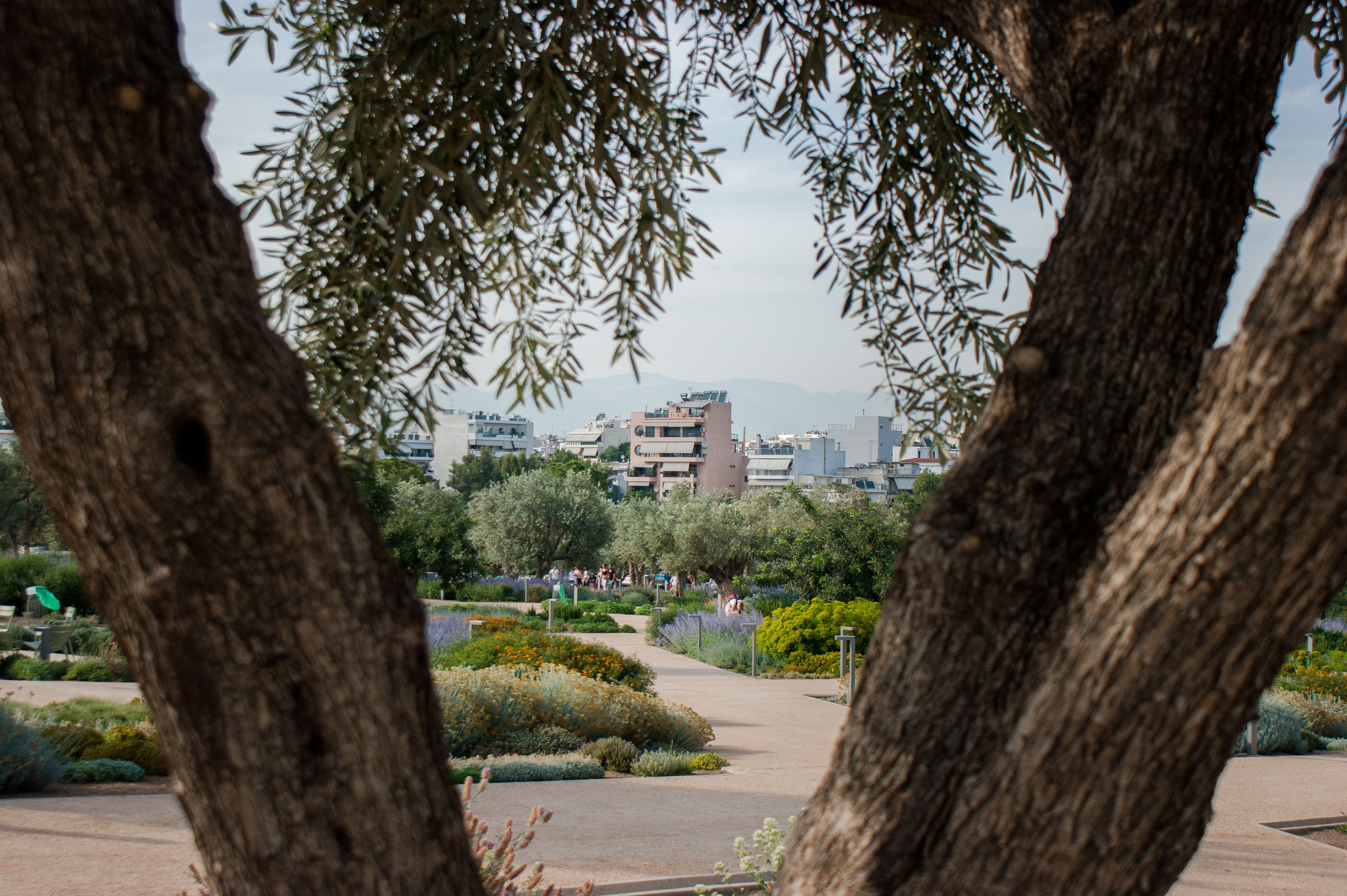
Q: It is recognised that it’s over now, but how has the national crisis affected Greek tourism and what can you say about it?
As I said before, it seems that the financial crisis has not affected the tourism sector directly, because tourism has shown resistance. It’s the sector that showed resilience to the changes in the economy. I think it has not affected the tourism enterprises in a way that it happened to other enterprises. In commerce and other services, you can see it when you go around Athens – shops are closed, you can see vacant places. In tourism this has not happened – it had the potential and now we have built on that potential, and with great work, we are doing in the ministry things have changed and it is a good prospect for tourism in the future.
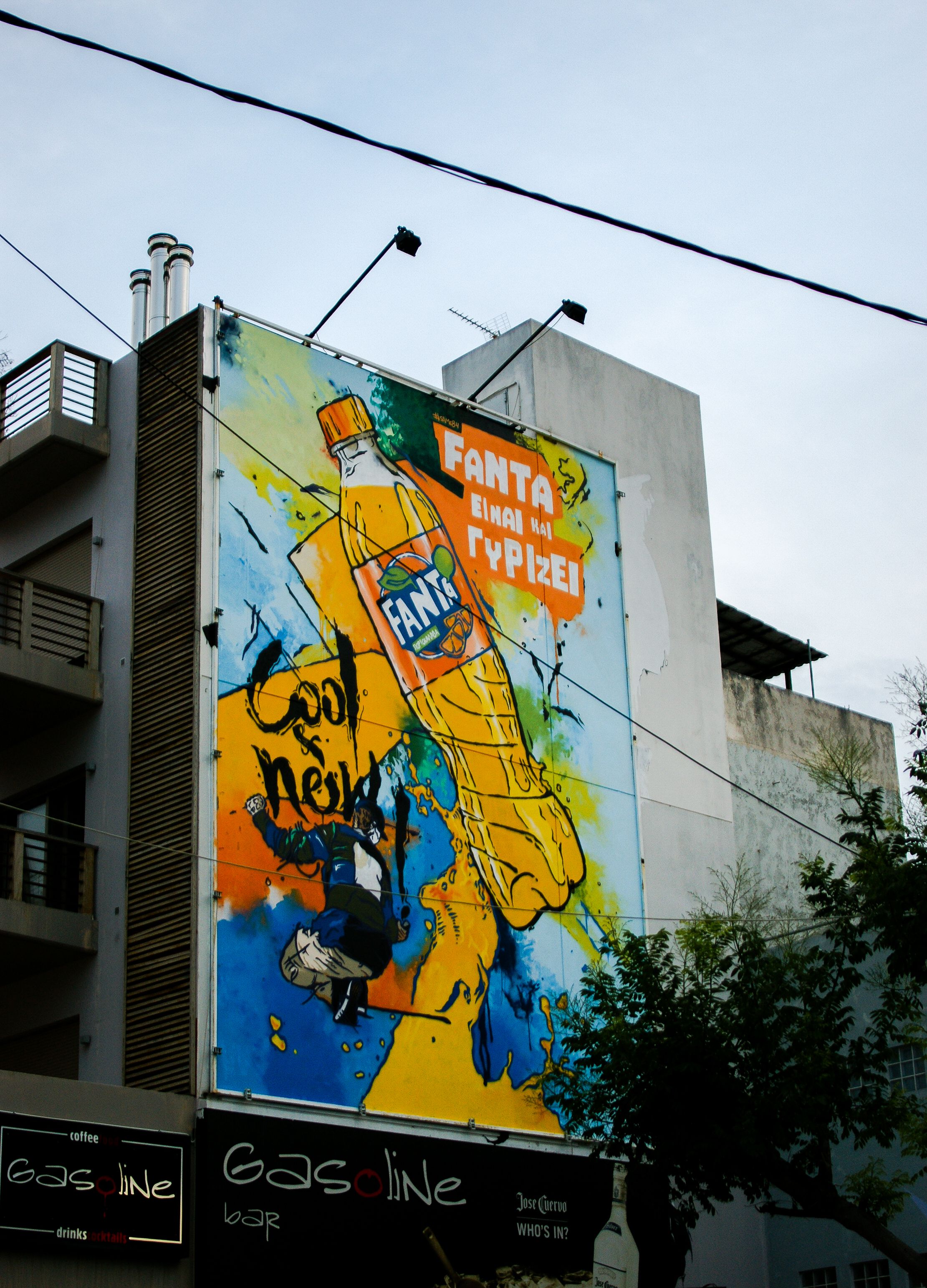
Q: How are you coping with the aftermath of terrorism in the region?
Greece is a very secure and safe destination and together with the Greek traditional hospitality, and the solidarity that we have shown, there is no reason to be afraid. The people, especially the older people on the islands that have suffered for some time, showed hospitality and solidarity towards refugees. Our attitude and friendly people that embrace every visitor show that the country wants to have tourists from all over the world. There are countries far away from Greece that have had issues, but this has nothing to do with Greece. We believe it will stay this way.
Q: Is the Greek tourism brand recognizable enough or do you believe you should do something more to promote it?
Greece is one of the most recognized countries in the world. We have the Greek National Tourist Association, which is an organisation that is actually supervised by the ministry and is responsible for all the promotion, marketing, tourism exhibitions, Fam Trips and they have been doing very good work for the last couple of years. Just to name one example: last year we had 250 Fam Trips in Greece, with only 40 or 50 in the previous year. People know Greece, not only for the beauty, history and the culture but also for the good weather, for the climate, for the people and the gastronomy. The brand itself is very recognizable. We are trying to promote Greece in new markets, like China, India, Arab countries, Israel, Egypt, and to encourage and reopen the markets in Russia and the United States.
We were recently in Moscow to discuss our future cooperation and we came to the conclusion that 2018 will be the Greek – Russian year of tourism and we are hoping to do the grand opening and some exhibitions by the end of September. Of course we participate in almost every exhibition around the world, with great success especially in the countries where we haven’t participated before. The government has started to realize that strengthening the Greek tourism brand should be a number one priority and we’ve successfully secured more funds for the marketing of Greece worldwide.
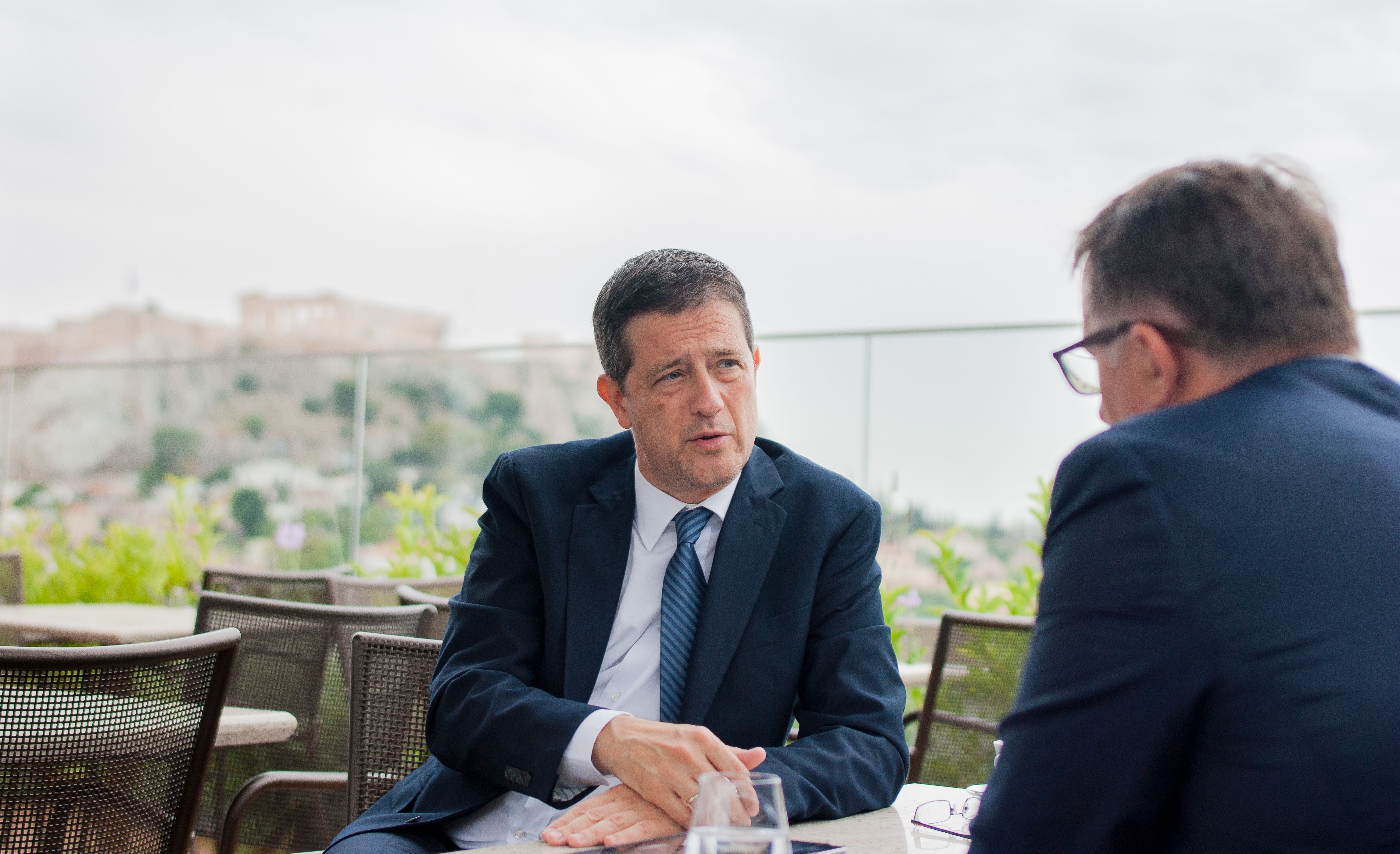
Q: How does the Greek MICE market differ from the rest of Europe?
We have a lot of international congresses organised by renowned associations and loads of venue possibilities to host them. Events in Greece can be organised throughout the year, as the climate is good and the facilities are of an excellent quality. We are encouraging four and five star hotels that already have facilities to host smaller scale congresses and exhibitions and this is something that has been done with great success. In the last couple of years, new hotels have been growing, the existing ones have been renovated and more space for congresses is constantly being created. The hoteliers understand that it is a good market to attract tourists.
We also have some big venues that are not so well exploited yet. There is a very big and important congress centre in the University of Patras with around 8,000 seats. We are working together with the university to give it a more prominent role. We also have an idea for the Taekwondo stadium, which is close to the Phalerum area and where the so-called ‘Athens Riviera’ starts. It was selected by the government to be transformed into a congress centre in the Juncker plan of the European Commission, which has some amazing candidates waiting for development. Of course you need some kind of a private sector interest to create the funding together with the public sector.
What makes congresses in Greece special is all the possible activities that revolve around them. You can have thematic activities, like cruises to the islands after your conference, visits to the necropolis, museums, art exhibitions etc. This is something that we can offer and do better.
Q: In what light do you see the legacy of the Olympic Games?
The Olympic legacy is something that we need to build on more than we have done in the past. As I mentioned before, the Taekwondo stadium is one of those things. With some effort, financial support and private interest we can have congresses there. Another story is happening with the Olympic venues in the Elliniko area, where they will be developed into a big residential area with recreational facilities. We need to understand that every development, every project and every effort that is made for the city, for the country, for the islands and all of the areas is good for tourism. Tourism has synergy, it has collaboration with all of the sectors and activities throughout the country and its economy.
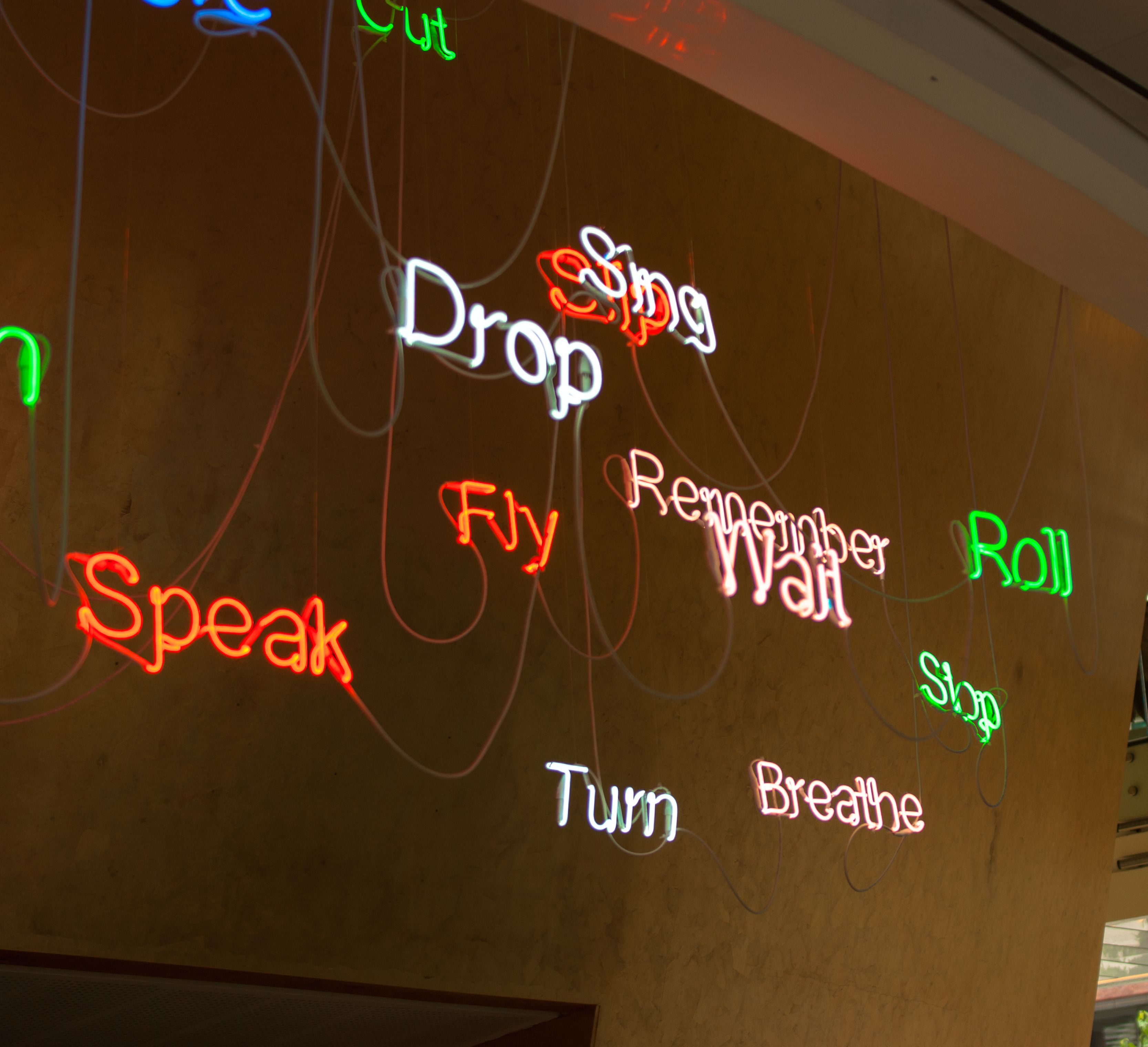
Q: What do you think needs further development when it comes to infrastructure in the MICE segment?
The first thing is the new hotels that have been built – there are quite a few of them, and there are more in the future, because we know the applications in the ministry. All of them will have good congress and conference areas and rooms, so we will have good infrastructure for that, which is quite an advantage. As I said, it’s good to exploit the opportunities of existing venues, or make full use of the ones that are already in existence. Big congresses and conferences are organised in big cities, like Athens and Thessaloniki. We are also trying to create some incentive programmes and new venues on the small islands and smaller Greek destinations so they can profit from it too, which means that they will upgrade the infrastructure. There are also some programmes from the EU co-funding; one was last year, and now there were businesses from the tourism sector receiving money to upgrade their infrastructure. So there is potential for businesses to submit an application and at the end get some money to upgrade, and one of the infrastructure upgrades should definitely be in venues for congresses and conferences.
Q: From a European perspective Athens and Thessaloniki are the major hubs, but do you also see some other hubs in Greece?
Patras is a growing destination with good connections. We have airports in Araxos and destinations with big hotels like Crete and Kalamata. The minister was in New York last week and she agreed with the ASTA, American Society of Travel Agents, to have their congress in Athens in March or April 2018. This is a very important event that will definitely bring visibility to Greece. Actually it is the first time they will be doing it here in Greece.
Q: What would be your ideal event to host in Athens?
One of the events that I mentioned before is the ASTA Congress and we’ve hosted loads of other events similar to it. Last week Athens was the host of the Concordia Europe Summit and the Documenta Conference from Kassel a few weeks prior to that. An ideal event doesn’t have to be huge, but it has to be significant in what it brings to the people and the city. You need to have a unique idea, something that attracts people to get to know Greece more and at the end of the day the country will benefit from that. If you do something for tourism the whole country benefits and all of the other sectors benefit as well, not just tourism. The renown of Greece will benefit.
Q: How strong is the start-up scene here in Athens?
We’ve grabbed the opportunities of securing funds from the European commission to have different programmes for subsidizing businesses for different infrastructures and there is a new programme worth 120 million EURO for the start-up of new businesses. A lot of young people are coming up with new ideas and have the imagination to create things. Next Monday I have a meeting with some young professionals from the tourism sector, because we need some new ideas and I know we can learn a lot from their creativity and enthusiasm. I think the general energy towards the start-up scene is very positive and growing.



